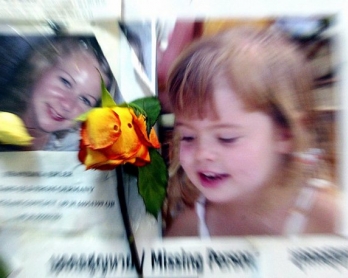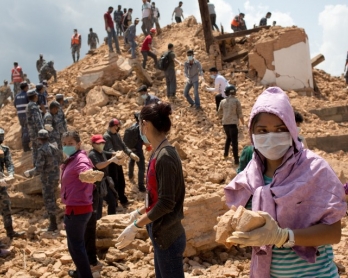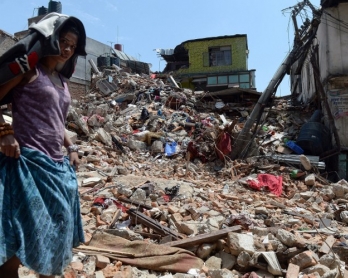Paradise lost
Amatrice, Italy -- We were deep in southern Italy working on a feature story when we got word about the quake. We set off immediately but it was a good six-hour drive from where we were. It was frustrating being so far away -- you know that with each passing hour, it’s going to be more difficult for you to get to the affected areas because the roads are going to be closed off.
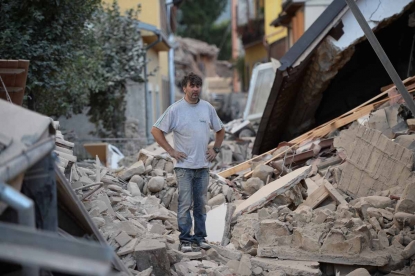 Amatrice.
(AFP / Filippo Monteforte)
Amatrice.
(AFP / Filippo Monteforte)We got to the area around midday. The tricky thing about this earthquake is that it affected a hilly area where there are lots of small hamlets. There isn’t one main point where you work, like there was in the 2009 L’Aquila quake. The access to the biggest town was blocked, so we headed first to a little hamlet, Illica.
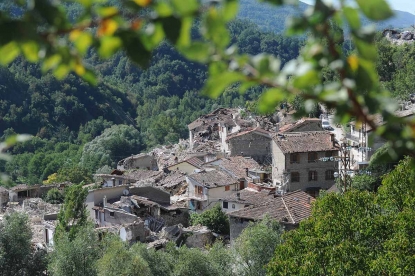 Pescara del Tronto.
(AFP / Marco Zeppetella)
Pescara del Tronto.
(AFP / Marco Zeppetella)We drove as far as we could and then we grabbed our equipment and we hiked up the rest of the way. We had been in the south on another sort of story entirely, so we had our sandals, bikinis. Not really proper attire for hiking in the mountains.
The Italians may be famous for being disorganized, but I have to say, they’re very good at emergency situations.
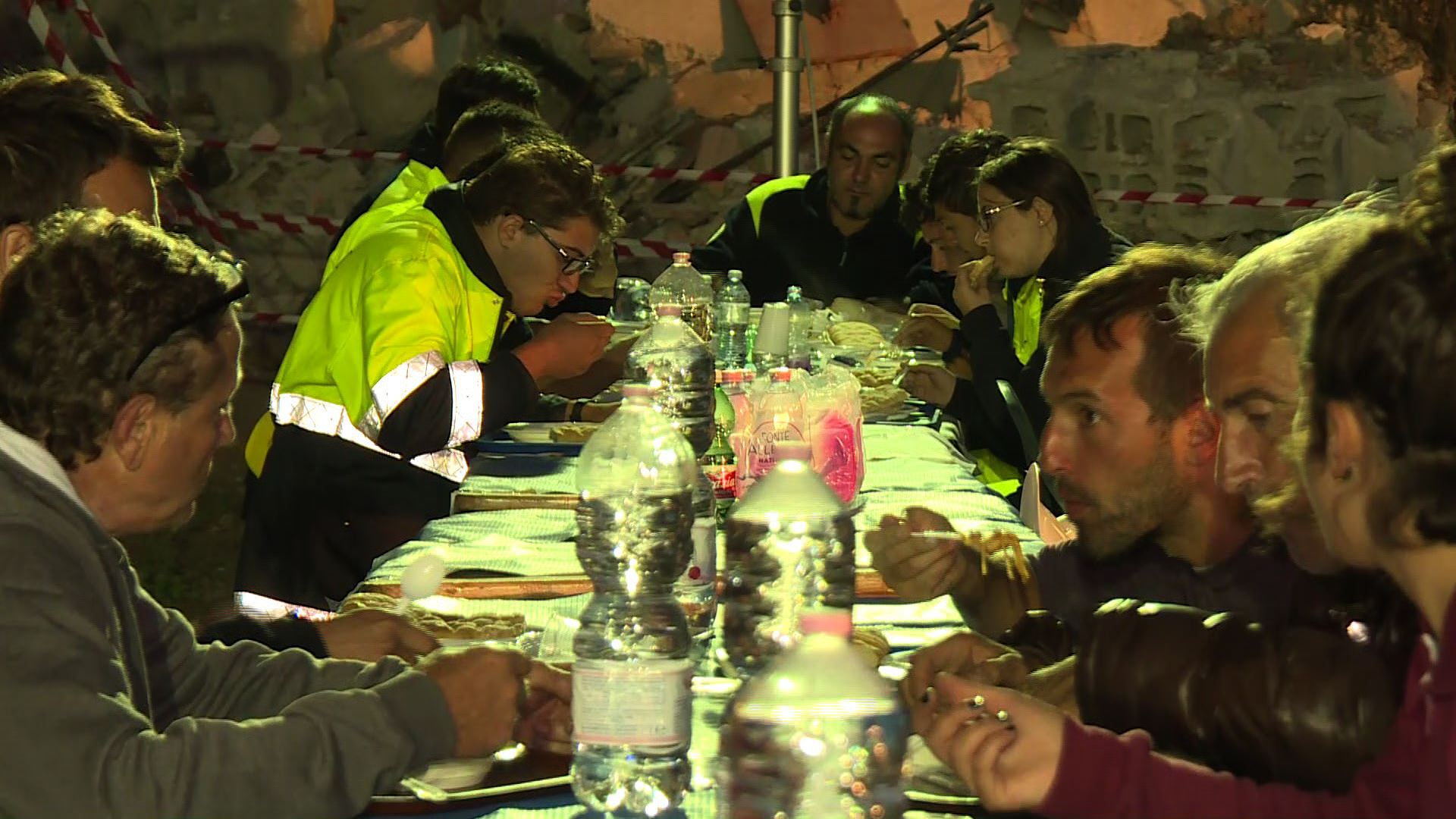
It was immediate mobilization. When we got on the spot, they had blankets, food, first aid etc already distributed to those affected.
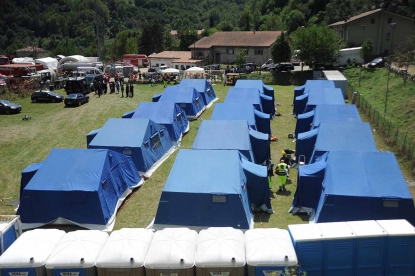 Tents for survivors in Arquata del Tronto.
(AFP / Marco Zeppetella)
Tents for survivors in Arquata del Tronto.
(AFP / Marco Zeppetella)You brace yourself for the human aspect of it, but it still hits you. This place is very small, so everyone knows everyone else here. We spoke to one young man who told us he lost five friends. As we spoke, they pulled out a body of a girl he knew out of the rubble. “When does it stop?” he asked.
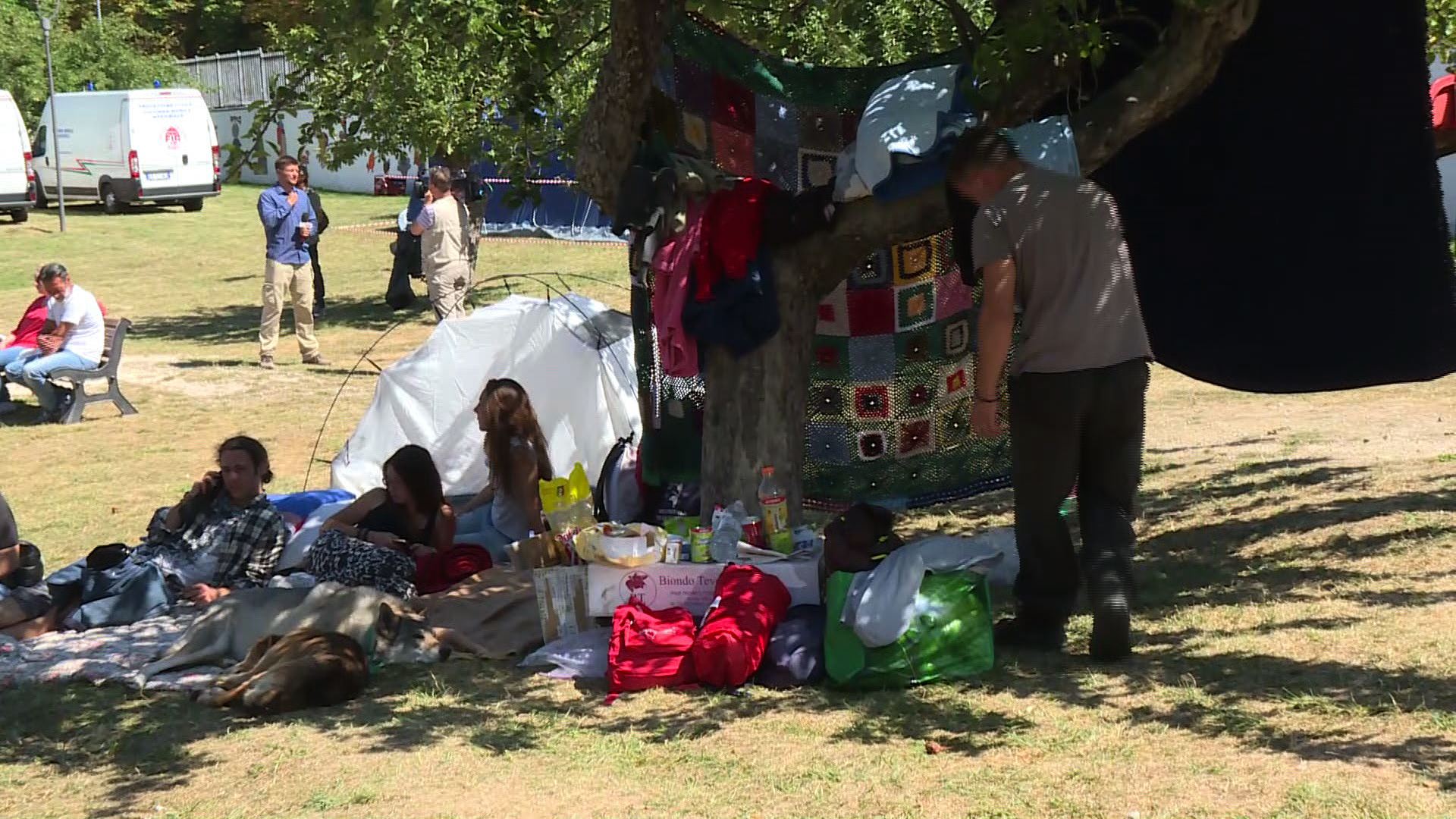
You can be interviewing someone and their relatives are under the rubble not far from you. And they still have a tiny glimmer of hope that they’re alive. Or they could be dying as you’re speaking. One woman sobbed as she told us her 75-year-old sister was trapped but they couldn't get to her as the buildings around were so unstable.
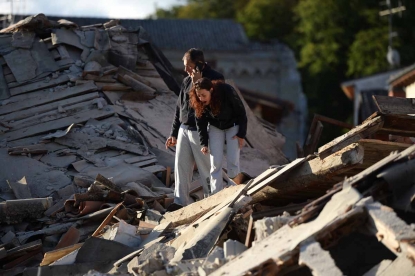 Calling for survivors in Amatrice hours after the quake.
(AFP / Filippo Monteforte)
Calling for survivors in Amatrice hours after the quake.
(AFP / Filippo Monteforte)Another woman we met had lived through the L’Aquila earthquake but moved here because it was safer. I’ve seen a lot of people resigned to life with quakes. People saying "we’ll just rebuild, life goes on”.
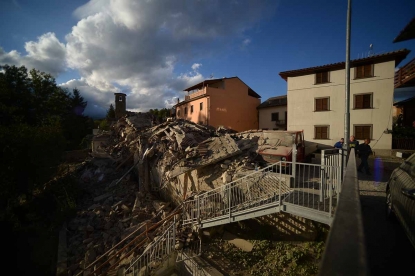 Amatrice.
(AFP / Filippo Monteforte)
Amatrice.
(AFP / Filippo Monteforte)We haven’t seen much anger, but there have been rumblings about buildings that were supposed to be quake-proof but weren’t. We haven’t been able to access all of the areas yet, but from the death toll, it would seem there was a lot of damage, people are saying it's worse than L’Aquila. There, you had 70,000 people living in the area and 300 dead. Here, you have 5,000 people max and a similarly high death toll. The houses collapse and become tombs in seconds.
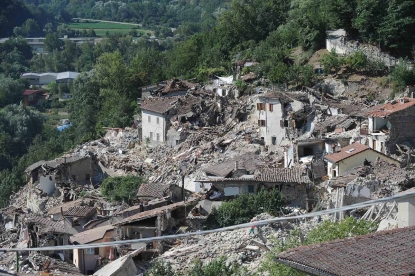 Pescara del Tronto.
(AFP / Marco Zeppetella)
Pescara del Tronto.
(AFP / Marco Zeppetella)Because the area where the quake hit is so spread out, it’s been challenging logistically. We have to hike anywhere from a half hour to a few hours to get to each scene. The first 24 hours it was almost impossible to access electricity so when the equipment ran down we had to call it a day and trudge back to the car.
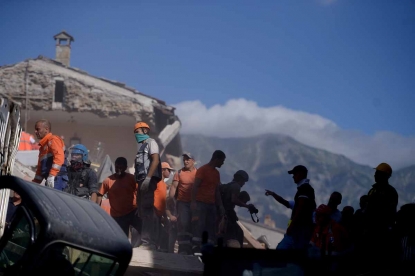 Clearing the rubble in Amatrice hours after the quake struck.
(AFP / Filippo Monteforte)
Clearing the rubble in Amatrice hours after the quake struck.
(AFP / Filippo Monteforte)Same goes for the sleeping arrangements. In L’Aquila, the journalists could stay in a hotel in the city so it was easy to work around the clock. But here, we have the option of sleeping in the car - not great when you only slept a couple of hours the night before and are shattered - or do what we did last night and drive for an hour to an undamaged area.
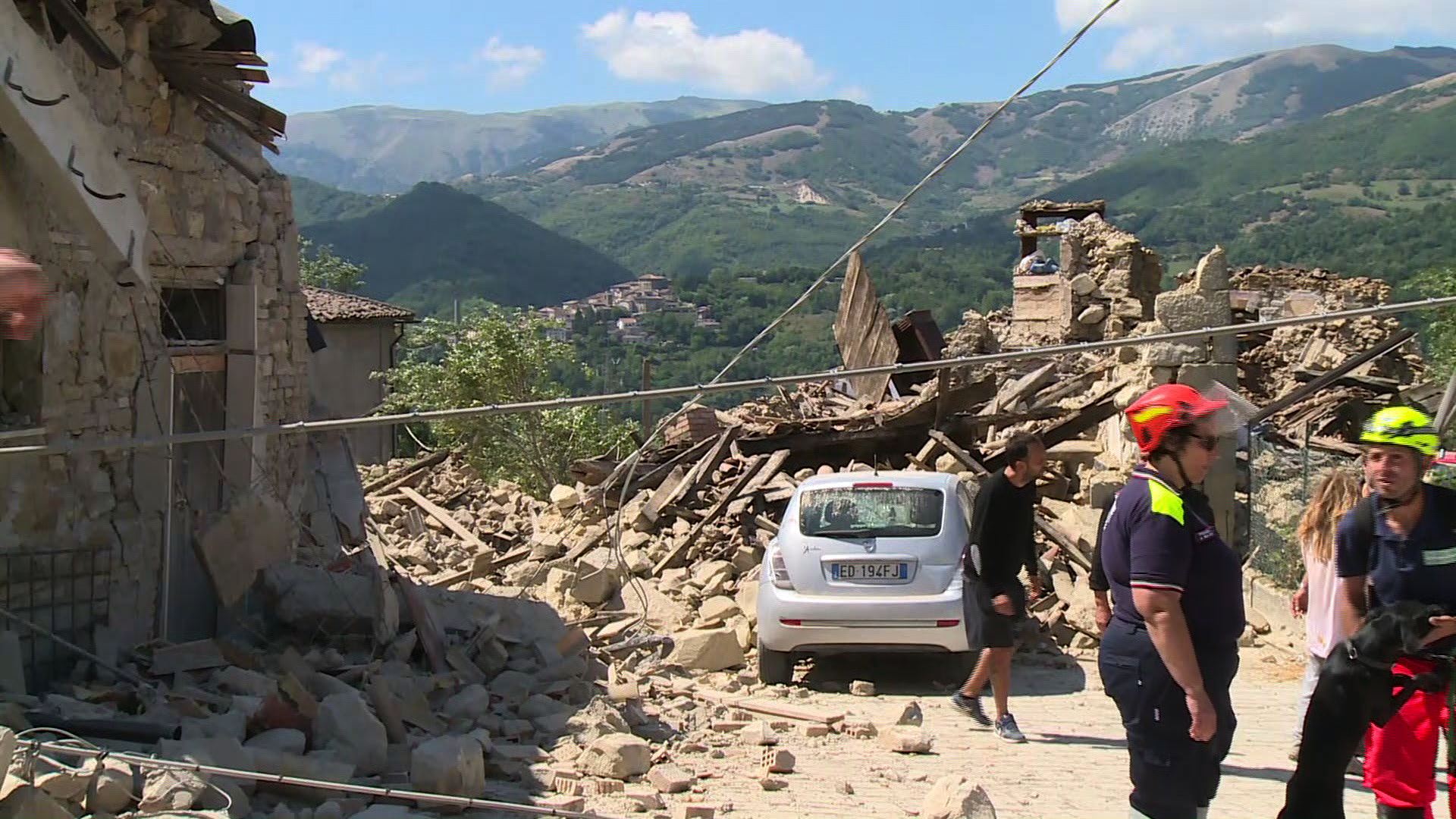
It’s a bit surreal working here because the surroundings are so stunning -- we're nestled among the mountains, it’s very green, bright sunshine, blue skies. And you’re covering death and tragedy. You have to drop everything and dart to safety when the afterquakes hit. There were a lot of people here because there was supposed to be an Amatriciana festival this weekend, with tourists coming from far and wide to taste one of Italy's most famous pasta dishes. Plus it’s the last week of summer holidays. It was much fuller than it would have been otherwise.
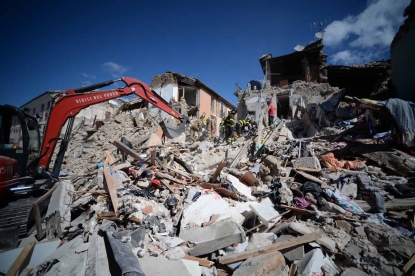 Amatrice hours after the quake.
(AFP / Filippo Monteforte)
Amatrice hours after the quake.
(AFP / Filippo Monteforte)One woman told me -- “we had everything -- a lovely community with little shops, tourists loved it here. This was paradise and we’ve lost everything.”
This blog was written with Yana Dlugy in Paris.
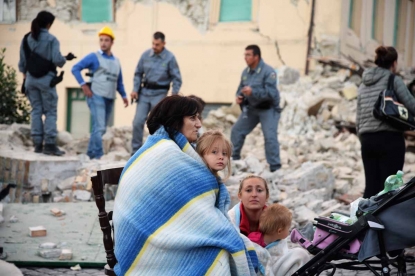 Victims in Amatrice hours after the quake.
(AFP / Filippo Monteforte)
Victims in Amatrice hours after the quake.
(AFP / Filippo Monteforte)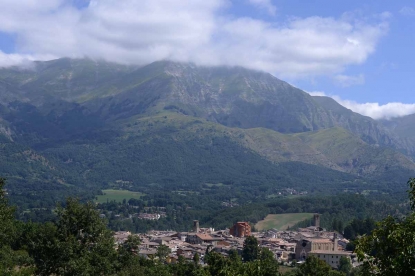 Amatrice. (AFP / Filippo Monteforte)
Amatrice. (AFP / Filippo Monteforte)




